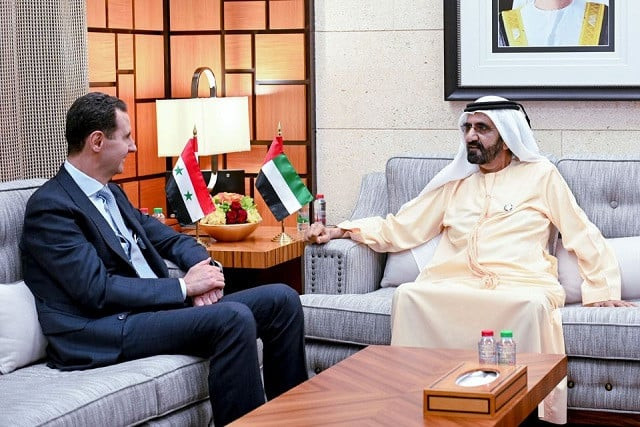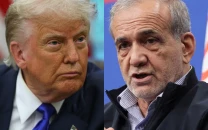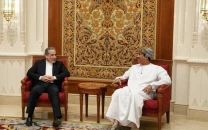Syria's Assad visits UAE, first trip to Arab state since war began
US says 'profoundly disappointed' at UAE move

Syrian President Bashar al-Assad traveled to the United Arab Emirates on Friday, his first visit to an Arab state since the Syrian war began in 2011, underlining warming ties with a US-allied country that once backed rebels who sought his ouster.
Assad met Abu Dhabi Crown Prince Sheikh Mohammed bin Zayed al-Nahyan who “stressed that Syria is a fundamental pillar of Arab security, and that the UAE is keen to strengthen cooperation with it”, Emirati state news agency (WAM) reported.
A video posted by WAM showed Assad smiling as he stood alongside Sheikh Mohammed in front of the Syrian and Emirati flags, as well as gesticulating and smiling during talks.
The visit drew a sharp rebuke from Washington, with the State Department saying it was “profoundly disappointed and troubled” by what it called an apparent attempt to legitimize Assad.
Assad’s only trips outside Syria during the war have been to Iran and Russia, close allies whose military support helped him turn the tide against opponents who had been backed by governments including US-allied Gulf states.
Read US military hid airstrikes that killed dozens of civilians in Syria: NYT
He also met on Friday with Dubai ruler Sheikh Mohammed bin Rashid al-Maktoum, the Syrian presidency said in a statement.
The timing of the trip coincided with the eleventh anniversary of the Syrian uprising, which began in March 2011, and at a time when Washington has been working worldwide to unite allies and partners against Russia’s invasion of Ukraine.
State Department spokesperson Ned Price reiterated that Washington remains opposed to efforts to normalise ties or rehabilitate Assad. He said the United States will not waive or lift sanctions on Syria unless progress is made toward a political solution to the conflict, which has killed hundreds of thousands of people since spiralling out of an uprising against Assad.
“We urge states considering engagement with the Assad regime to weigh carefully the horrific atrocities visited by the regime on the Syrians over the last decade, as well as the regime’s continuing efforts to deny much of the country access to humanitarian aid and security,” Price said in an email.
Washington had expressed concern in November when the UAE foreign minister visited Damascus and met Assad.
But the Biden administration has eroded its political capital with both Riyadh and Abu Dhabi by not heeding their concerns about regional rival Iran, ending its support for their war in Yemen and slapping conditions on US weapons sales to the Gulf states.
WAM said the sides emphasized “the preservation of the territorial integrity of Syria and the withdrawal of foreign forces” from the fragmented country where Russia, Iran, Turkey and the United States all have a military presence.
They also discussed political and humanitarian support for Syria and its people to reach a peaceful solution to all the challenges it faces, WAM reported.
WAM said Sheikh Mohammed “expressed his wishes that this visit will pave the way for goodness, peace and stability to prevail in Syria and the entire region”. Assad briefed him on the latest developments in Syria, it said.
Assad was seen off by Sheikh Mohammed at the airport.
The meetings marked the latest in a series of diplomatic overtures that point to a shift underway in the Middle East where several Arab countries are reviving ties with Assad.
Signs of rapprochement between Assad and Arab states grew last year, including a phone call with King Abdullah of Jordan, another US ally.
Analysts say political and economic considerations loom large for Arab states that are seeking closer ties with Assad, including how to counter the influence of Iran and Turkey.



















COMMENTS
Comments are moderated and generally will be posted if they are on-topic and not abusive.
For more information, please see our Comments FAQ